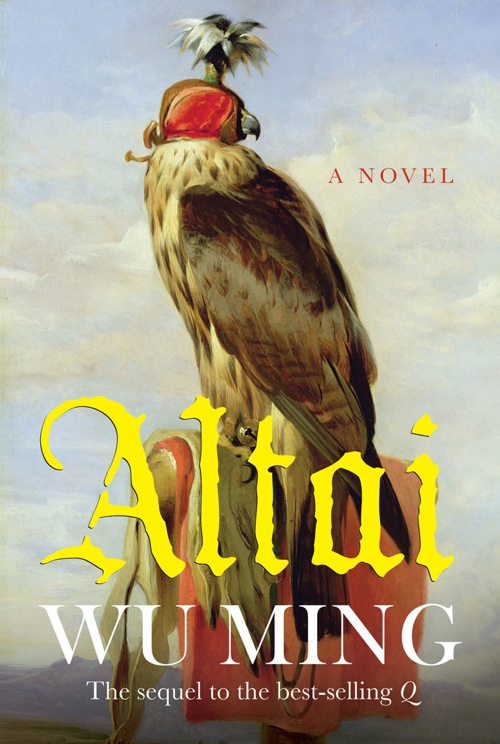Altai by Wu Ming

Altai is a novel by Wu Ming telling the story of an attemp to create a Jewish nation within the Ottman Empire settled on Cyprus.
Review by Stephen Abell first published at The Telegraph
Do not judge this book by its cover: its title and the name of its author carry almost no meaning. For what it’s worth, “Altai” is a type of hybrid falcon, white and “streaked with a rainy pattern of dark grey patches”, which appears and then flutters off inconsequentially. “Wu Ming” is Chinese for either “five men” or “no men”; it is the pen name of a collective of four (count them) Italians.
Indeed, the narrative has the winningly pulpish feel of a noir detective novel. The narrator, Edmund De Zante, is a disgraced spymaster from Venice, who finds himself working for a Jewish fixer, Joseph Nasi, in the pay of Selim II in order to build a new Zion on Cyprus.
Battling conspiracy in the Ottoman court, De Zante teams up with “Ismail”, and they travel between Constantinople and Cyprus, seeking to intervene in the great religious war between pope and sultan set to reach a bloody climax at the Battle of Lepanto.
Of course, nobody in the novel has one name or one purpose: De Zante is also called Manuel Cardoso; Nasi is either the “Duke of the Cyclades, prince of Europe, favourite of the Sultan” or “the Swine of Judah, the Sultan’s Catamite, the arch-enemy of La Serenissima”, depending on your point of view. Even the date of the final action is not simple: 1 Elul 5331, 11 Jumada al-Awwal 979, October 1 1571.
Order Altai at Amazon
Wu Ming
Verso, £16.99, 272pp
Related Posts
Tags: altai, book, Contemporary Art, counter culture, SI, wu ming
Trackback from your site.




